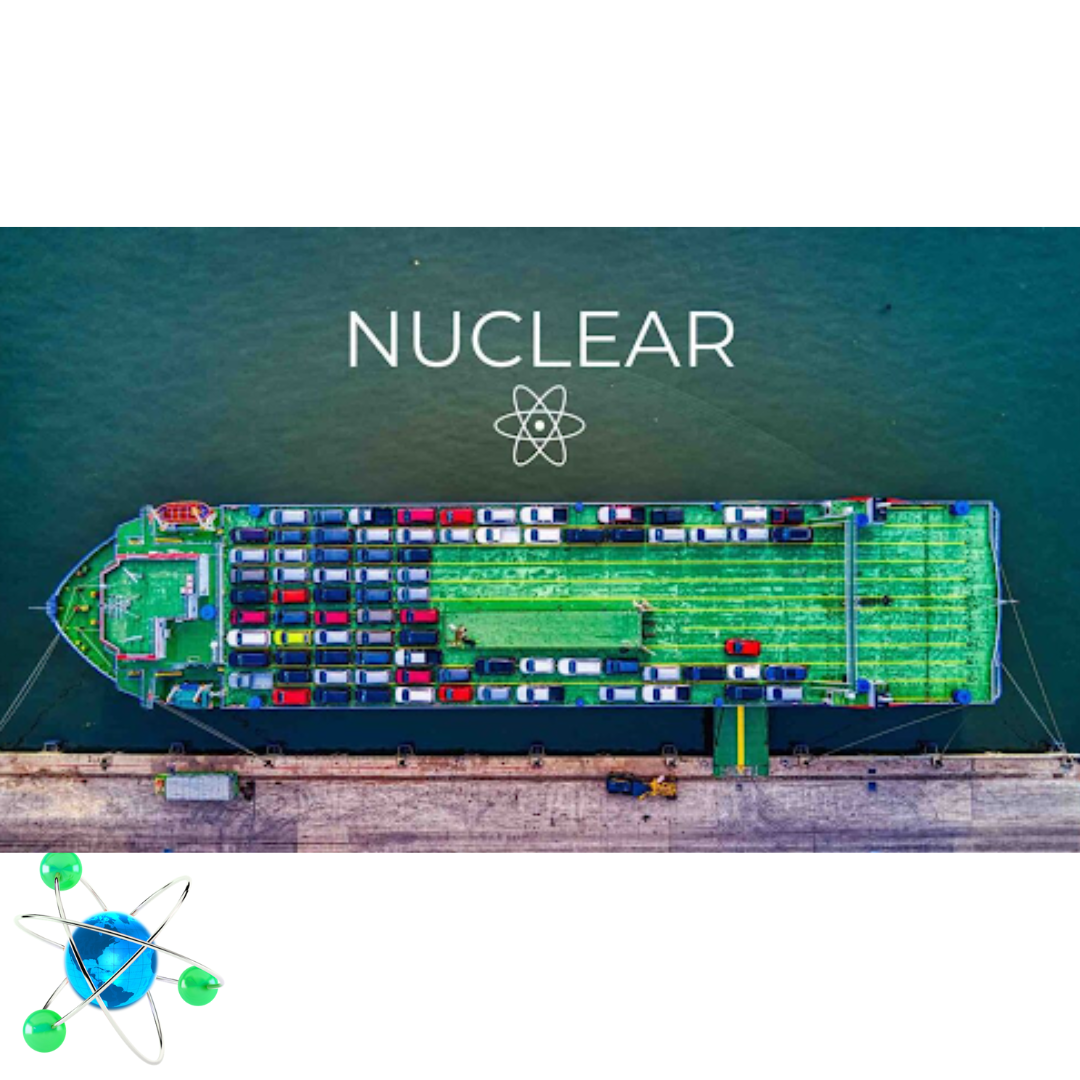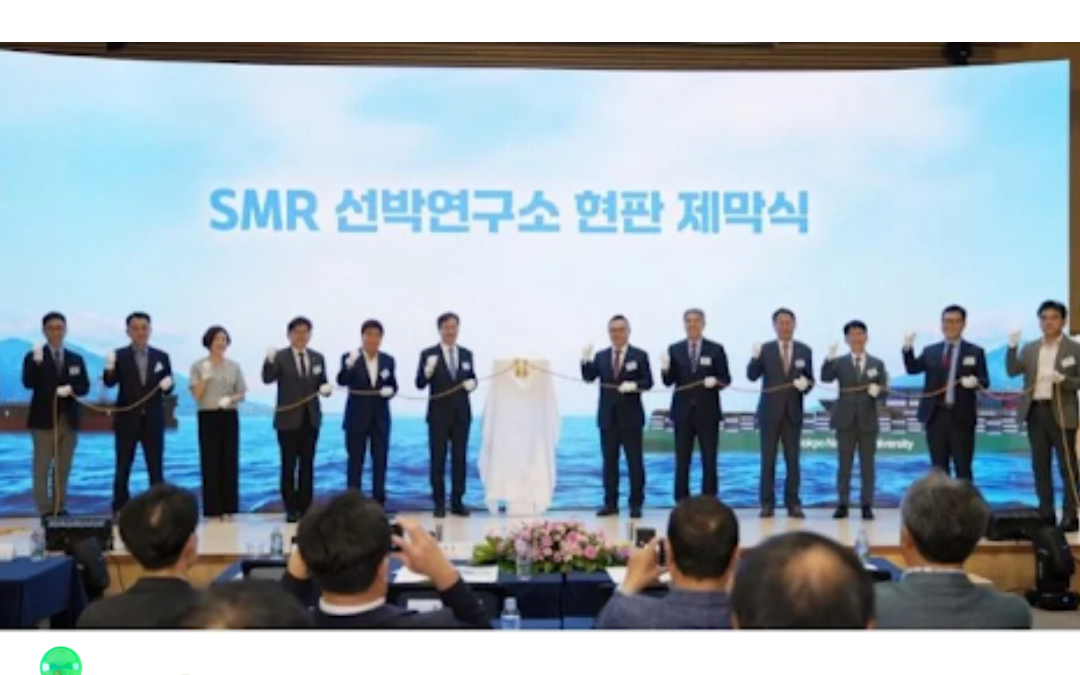
- Mokpo National University in South Korea launched the world’s first SMR Ship Research Institute to develop core small modular reactor (SMR) technologies for ship research and education, with over 100 attendees at the ceremony.
- The initiative involves collaboration with various stakeholders, including Korea Hydro & Nuclear Power, global shipyards, and international classification societies, to meet the IMO’s 2050 mandate for carbon-free maritime vessels.
- SMRs are highlighted for their potential in the marine industry due to their zero-carbon emissions, economic benefits, and modular design, aiming to advance eco-friendly ship technology and establish a global research and education hub.
South Korea’s Mokpo National University makes history as the world’s first SMR Ship Research Institute for developing core SMR technologies for ship research and education. The launch ceremony was held at Mokpo National University on July 2nd and had over 100 in attendance.
Attendees included representatives from Korea Hydro & Nuclear Power (KHNP), Korea Research Institute of Ships & Ocean Engineering Director, Korea Energy University, global shipyards such as Samsung Heavy Industries, HD Hyundai Samho, and HD Hyundai Mipo, international classification societies such as the American Bureau of Shipping, Det Norske Veritas, Lloyd’s Register, and Korean Register of Shipping, local governments, and representatives and related parties from shipbuilding and marine industry companies and organizations.
Beginning in 2050, all maritime vessels will need to exclusively utilize carbon-free fuels, as mandated by the International Maritime Organization (IMO) convention under the UN. The university highlighted that due to these stringent environmental guidelines for marine operations, there is a growing demand for ships that utilize carbon-free fuels and integrate advanced new technologies. Particularly, small modular reactor (SMR) ship technology is gaining prominence as a pivotal technology for the future marine industry.
SMRs, a zero-carbon emission energy source, has gained serious traction in America’s carbon-free emissions goal by 2050. The appeal of SMR’s within shipping comes from their generating capacity of 300 MWe or less. They are designed to be modularized and manufactured in factories and assembled on site. This way can reduce SMR construction periods and cost compared to existing large nuclear power plants. In addition, SMRs are highly economical because they do not require large storage tanks such as hydrogen tanks and have the advantage of reducing radiation emergency planning areas.
In his welcoming speech, Mokpo National University President Song Ha-cheol said: “We plan to develop and operate a world-class curriculum…We will secure future eco-friendly ship technology through the SMR Ship Research Institute and strive to develop into a global hub for SMR ship research and education.” The university noted that it established the SMR Ship Research Institute in order to proactively respond to these demands “to build a cooperative network with domestic and international organizations and companies, including universities, research institutes, large shipbuilders, and international classification societies, and to conduct full-scale research.”

